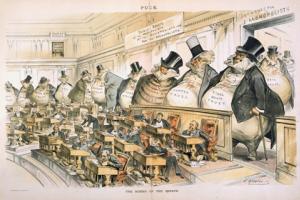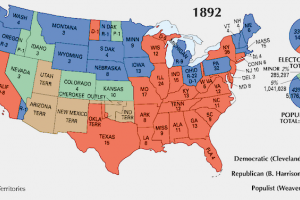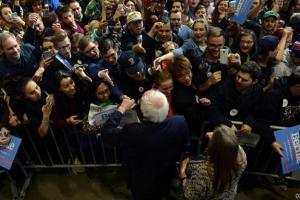What’s the Matter With Oklahoma?
The American Prospect
 Populism is an ideological chameleon—often supplemented with whatever authoritarian, nationalist or socialist inclinations held by those leading the particular movement—populist victories can (and often do) manifest in all manner of terrible ways around the world. Other times, they change the political realm for the better.
Populism is an ideological chameleon—often supplemented with whatever authoritarian, nationalist or socialist inclinations held by those leading the particular movement—populist victories can (and often do) manifest in all manner of terrible ways around the world. Other times, they change the political realm for the better.
 Brexit has come to the United States. For thirty years now, in Europe and the United States, a bipartisan neoliberal consensus has embraced the benefits of globalization and the rise of the "knowledge economy." If only workers would go back to school, retrain, and send their children to college, the good jobs that disappeared would somehow return. But those good jobs did not arrive, and voters have opted for a faux populism that promises to reverse globalization.
Brexit has come to the United States. For thirty years now, in Europe and the United States, a bipartisan neoliberal consensus has embraced the benefits of globalization and the rise of the "knowledge economy." If only workers would go back to school, retrain, and send their children to college, the good jobs that disappeared would somehow return. But those good jobs did not arrive, and voters have opted for a faux populism that promises to reverse globalization.
 Trump's nationalism is absolutely about ethno-purity and an element of populism as well, although it's clearly a misdirection...it's largely about wounded national pride which has been a potent motivating force on the American right for a very long time. The reason Trump is now playing the conservative anthem "Proud To Be An American" at his rallies is: Good old fashioned jingoism - the one thing that brings the old right, the new right and the alt-right together.
Trump's nationalism is absolutely about ethno-purity and an element of populism as well, although it's clearly a misdirection...it's largely about wounded national pride which has been a potent motivating force on the American right for a very long time. The reason Trump is now playing the conservative anthem "Proud To Be An American" at his rallies is: Good old fashioned jingoism - the one thing that brings the old right, the new right and the alt-right together.
Gary Younge argues that it might be tempting to view the political success of Republican presidential candidate Donald Trump as something uniquely American, but it's not.
 Though the People's Party lost, Weaver managed to win 5 states (Kansas, Colorado, Nevada, Idaho and North Dakota) and 22 electoral votes—the most electoral votes won by a third party since the Civil War. The impressive third-party turnout illustrated the bipartisan frustration of the period and the extent to which Populist rhetoric resonated with voters at the time.
Though the People's Party lost, Weaver managed to win 5 states (Kansas, Colorado, Nevada, Idaho and North Dakota) and 22 electoral votes—the most electoral votes won by a third party since the Civil War. The impressive third-party turnout illustrated the bipartisan frustration of the period and the extent to which Populist rhetoric resonated with voters at the time.
 Bernie Sanders calls himself a socialist, but the US needs its own version, not Denmark's. Socialism, on the other hand, historically has gone far beyond progressive welfare state measures by asserting that a democratic society can be achieved only if it includes democratic ownership of the economy. The steadily evolving localist forms of democratic ownership confront the traditional socialist questions and begin to answer them in novel ways.
Bernie Sanders calls himself a socialist, but the US needs its own version, not Denmark's. Socialism, on the other hand, historically has gone far beyond progressive welfare state measures by asserting that a democratic society can be achieved only if it includes democratic ownership of the economy. The steadily evolving localist forms of democratic ownership confront the traditional socialist questions and begin to answer them in novel ways.
 Rick Perlstein noticed Republicans showing up at Bernie Sanders events. He set out to find out just how many of them there are. They don’t know they are not supposed to like Bernie Sanders. They hear what he is saying, and like what they hear. Something is happening here that reminds us that our models for predicting winners and losers in politics always need to be subject to revision.
Rick Perlstein noticed Republicans showing up at Bernie Sanders events. He set out to find out just how many of them there are. They don’t know they are not supposed to like Bernie Sanders. They hear what he is saying, and like what they hear. Something is happening here that reminds us that our models for predicting winners and losers in politics always need to be subject to revision.
Spread the word